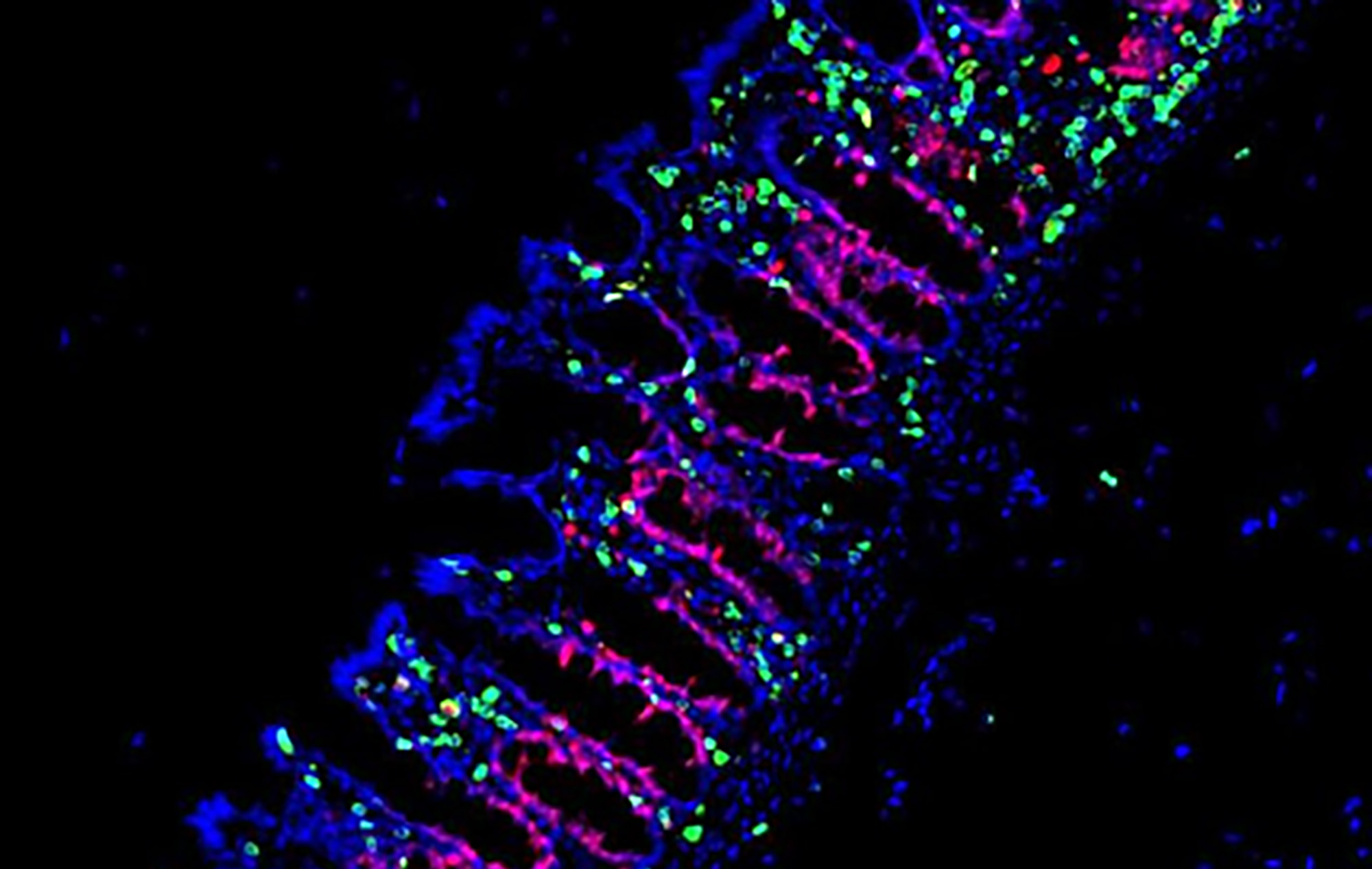An experimental antibody treatment largely prevented a bone marrow transplant complication called graft versus host disease (GVHD) in the intestines, without causing broad immune suppression, in a preclinical study led by researchers from Penn Medicine and Dana-Farber/Boston Children’s Cancer and Blood Disorders Center and published in Science Translational Medicine.
Even when a bone marrow transplant cures leukemia or lymphoma, GVHD—in which T cells in the donor graft attack the recipient’s own tissues—can still be fatal. The condition is among the leading causes of death and long-term adverse health consequences associated with bone marrow transplants.
Senior co-corresponding authors Ivan Maillard, a professor of medicine and vice chief for research in hematology-oncology at Penn’s Perelman School of Medicine, and Leslie S. Kean, a professor of pediatrics at Harvard Medical School and director of Pediatric Stem Cell Transplant at Dana-Farber/Boston Children’s Cancer and Blood Disorders Center, along with lead author Victor Tkachev, an assistant professor of surgery at Mass General Brigham, have long sought to prevent this fatal complication. Their study helps pave the way for human clinical trials of the new treatment.
“We found that just a single dose of antibodies to block the Notch signaling pathway, given immediately before the transplant, was able to prevent gastrointestinal GVHD, without impairing immune function in the rest of the body,” Maillard says. “The timing was critical. Intervening before any symptoms of GVHD appear made the long-term protection possible.”
Read more at Penn Medicine News.








